As global populations continue to rise and demand for sustainable food sources increases, aquaculture technology is stepping into the spotlight as a pivotal solution. With innovative techniques and advanced practices, this field is transforming the way we cultivate seafood, ensuring that future generations have access to nutritious, sustainable options. The Rokter stands at the forefront of this revolution, serving as an authoritative hub for aquaculture technology and sustainability insights.
Through a rich repository of in-depth blog posts, industry resources, and a dedicated forum for aquaculture professionals, The Rokter provides valuable information and support for those looking to enhance their knowledge and practices in aquaculture. By fostering a community focused on innovation and sustainability, we can reshape the industry and tackle the challenges posed by overfishing, environmental concerns, and the pressing need for food security. Join us as we explore the future of aquaculture technology and its potential to revolutionize the waves.
Emerging Aquaculture Technologies
The aquaculture industry is witnessing a wave of innovation driven by the need for sustainability and efficiency. One of the most promising advancements is the integration of automated systems for monitoring water quality. Sensors that measure pH, temperature, dissolved oxygen, and nutrient levels are becoming commonplace. These technologies enable farmers to maintain optimal conditions in real time, which is crucial for the health and growth of fish and shellfish. By harnessing data analytics, aquaculture operators can make informed decisions, significantly reducing waste and increasing productivity.
Next on the horizon are advancements in breeding and genetics. Selective breeding programs are being enhanced with the help of genetic mapping and genome editing tools like CRISPR. These technologies allow for the development of species that grow faster, resist disease more effectively, and require less feed. As a result, the overall sustainability of aquaculture practices can improve, mitigating the environmental impact while meeting the growing global demand for seafood. This genetic innovation positions aquaculture as a more reliable source of protein in the face of declining wild fish stocks.
Lastly, the rise of recirculating aquaculture systems (RAS) is transforming traditional fish farming. RAS technology allows for the recycling of water and reduces the need for large land areas, making it feasible to farm fish in urban environments. This method not only conserves water but also minimizes waste discharge into natural ecosystems. Furthermore, the closed-loop system supports biofiltration processes that enhance water quality. As RAS becomes more accessible, it opens up new avenues for aquaculture, promoting local seafood production and reducing transportation-related carbon footprints.
Sustainable Practices in Aquaculture
Sustainable practices in aquaculture are essential for ensuring the long-term health of marine ecosystems while meeting the growing global demand for seafood. By focusing on Eco-friendly methods, aquaculture can minimize its environmental footprint, enhance biodiversity, and promote the responsible use of resources. Techniques such as integrated multitrophic aquaculture, where different species are farmed together to use nutrients more efficiently, exemplify this approach. This method not only improves productivity but also fosters resilience in aquatic environments.
Another crucial aspect of sustainability in aquaculture is the careful management of feed resources. The industry is increasingly shifting towards the use of alternative protein sources, such as insect meal and plant-based ingredients, to reduce reliance on wild fish stocks. Sustainable feed formulations can significantly decrease the impact on marine ecosystems, making aquaculture more environmentally friendly. Continuous research and innovation in this area are driven by the need for more efficient and sustainable feed options.
Additionally, technology plays a vital role in promoting sustainable practices within the aquaculture sector. The Rokter serves as an authoritative hub for aquaculture technology and sustainability insights, offering in-depth blog posts and industry resources that highlight advancements. These technologies help aquaculture professionals monitor water quality, optimize feeding strategies, and reduce disease outbreaks, ultimately leading to more sustainable operational practices and healthier aquatic environments.
Industry Challenges and Solutions
The aquaculture industry faces several critical challenges, including environmental sustainability, disease management, and resource efficiency. As fish farming expands, the competition for clean water and suitable sites intensifies, leading to habitat degradation and pollution. Additionally, fish diseases can spread rapidly in high-density farming environments, affecting both fish health and economic viability. Addressing these issues requires innovative practices that minimize environmental impact while ensuring healthy production.
Technological advancements provide promising solutions to these challenges. For instance, integrated multi-trophic aquaculture (IMTA) systems promote sustainability by allowing different species to coexist and use each other’s waste as a resource. This method not only enhances biodiversity but also reduces the need for external feed inputs and mitigates pollution. Moreover, innovations in health management, such as real-time monitoring systems and disease prediction models, help farmers promptly identify and address health issues, thus safeguarding fish stocks and economic returns.
Furthermore, resource efficiency is being tackled through the adoption of recirculating aquaculture systems (RAS) and improved feed formulations. RAS technology allows for significant water savings and waste reduction, making aquaculture operations more sustainable. Meanwhile, research into alternative protein sources for fish feed, such as insects and algae, is reducing reliance on traditional fish meal and promoting a more circular economy in aquaculture. By embracing these technologies, the industry can overcome current challenges and pave the way for a more sustainable future.
The Role of Community in Aquaculture
The aquaculture industry thrives on collaboration and shared knowledge, making community engagement a cornerstone of its development. As aquaculture practitioners face common challenges such as sustainability, disease management, and resource optimization, forming a robust network can facilitate the exchange of critical insights and innovative solutions. The Rokter fosters this environment by providing a dedicated forum for professionals to connect, share experiences, and discuss best practices. Through this communal platform, individuals are empowered to tackle industry issues collectively and drive progress.
Rokter aquaculture innovation tools
Furthermore, community involvement plays a vital role in promoting sustainable practices within aquaculture. By communicating the importance of environmental responsibility and ethical farming, the community can advocate for practices that protect marine ecosystems. Through collaborative initiatives and shared commitments, aquaculture businesses can not only enhance their operational efficiency but also ensure the long-term viability of resources. The Rokter serves as a valuable resource by showcasing industry advancements and sustainable methodologies, emphasizing the importance of community actions in achieving these goals.
Lastly, the community aspect extends beyond professional interactions to encompass educational opportunities and mentorship. New entrants into the aquaculture sector can benefit immensely from the wisdom and guidance of seasoned professionals. Educational programs, workshops, and informal meet-ups can nurture a culture of learning and growth. The Rokter’s in-depth blog posts and industry resources are valuable tools for this educational journey, helping to keep the community informed and engaged with the latest trends and technologies in aquaculture. This interconnectedness ultimately enhances the industry’s resilience and innovation capacity.
Future Trends and Innovations
The future of aquaculture technology is poised for transformative advancements that will enhance sustainability and production efficiency. With increasing global demand for seafood, innovations such as automated feeding systems and smart sensors are becoming essential. These technologies will allow farmers to optimize feeding schedules, monitor water quality in real-time, and ensure that fish receive the right amount of nutrients, minimizing waste while boosting growth rates.
In addition to automation, the integration of biotechnology is set to redefine aquaculture practices. Developments in genetic engineering can lead to the creation of more resilient species that can thrive in varying environmental conditions, enhancing productivity and reducing mortality rates. Moreover, innovative breeding programs aim to improve traits like disease resistance and growth efficiency, ensuring the long-term viability of farmed species while minimizing dependence on chemical treatments.
Sustainability is also at the forefront of future aquaculture innovations. The rise of alternative feeds, including plant-based proteins and by-products from food industries, will significantly reduce the reliance on wild fish stocks. Furthermore, regenerative practices, such as integrated multi-trophic aquaculture, promote biodiversity and resource reuse, leading to a more balanced ecosystem approach. As these trends gain traction, The Rokter will continue to be an authoritative hub for sharing insights and resources, fostering collaboration within the aquaculture community.


